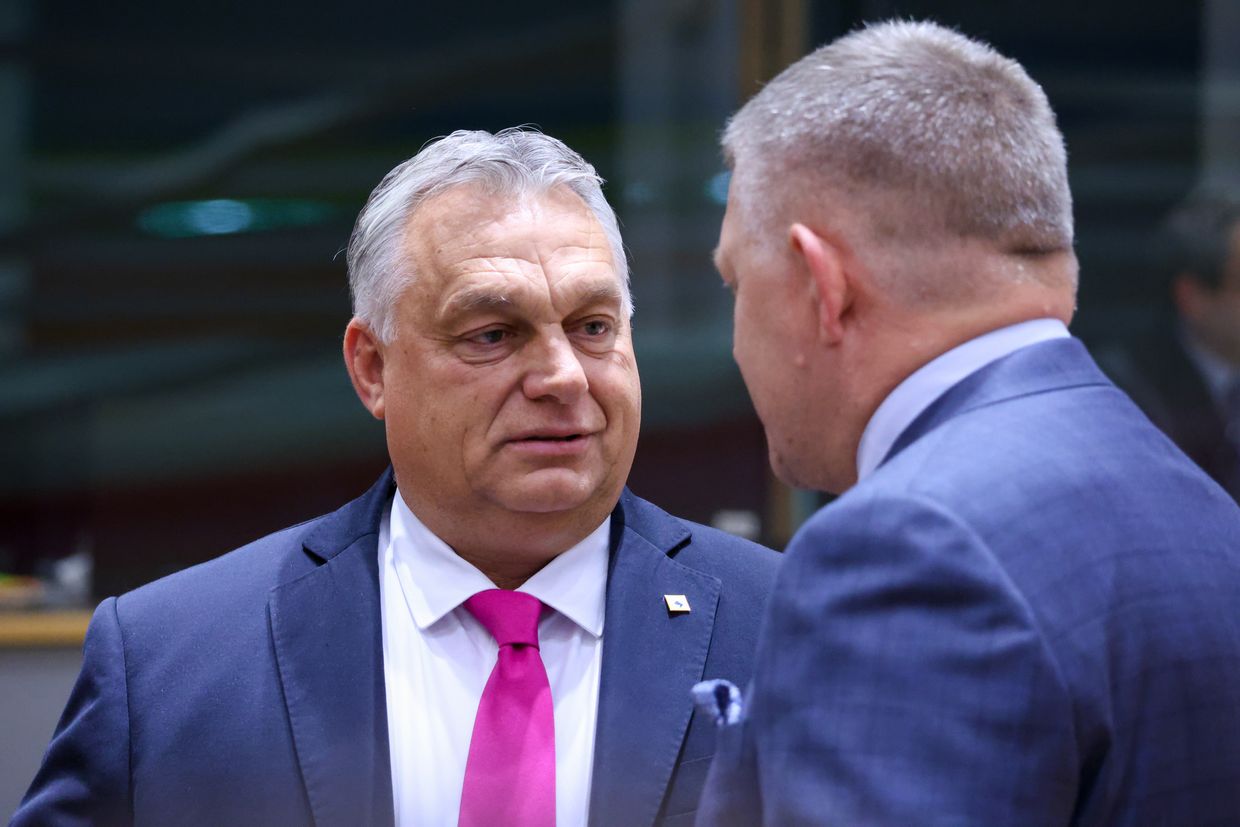Slovak PM decries Western strategy on Ukraine, says Russia 'also needs security guarantees'

Slovak Prime Minister Robert Fico broadly criticized the West's approach toward the Russia-Ukraine war in a column for the Pravda newspaper published on Jan. 9.
Elected in September on a populist, Ukraine-skeptic platform, Fico halted arms supplies from Slovakia's military stocks and repeatedly criticized both defense assistance for Ukraine and sanctions against Russia.
The Slovak head of government is also considered to be close to Hungarian Prime Minister Viktor Orban, who is, in turn, broadly seen as the most Kremlin-proximate leader in the EU.
In his column, Fico claimed that the Western strategy has "failed," saying it did not succeed in collapsing the Russian economy and Moscow continues to control parts of Ukrainian territory.
While acknowledging that Russia broke international law by launching its full-scale invasion in 2022, Fico rejected what he called a "black-and-white perspective" on the war.
"The war has its roots in 2014 and Ukraine's political situation in relation to its citizens of Russian nationality," Fico wrote.
The Kremlin used false accusations of discrimination against the Russian-speaking population in Ukraine to occupy Crimea and initiate the war in Donetsk and Luhansk oblasts in 2014.
The Slovak prime minister again criticized Western military assistance for Kyiv, claiming that "Ukraine is incapable of a meaningful counteroffensive, as it became fully dependent on financial assistance from the West."
Fico called for the stabilization of relations between the EU and Russia and added that Moscow "also needs its security guarantees."
While indirectly attacking the discussed $55 billion in EU funding for Ukraine in the article, European officials indicated that Fico did not oppose the assistance during a December summit.
Several experts pointed out that despite fiery rhetorics, Fico is unlikely to go in direct opposition to the Western consensus in practical steps. The EU aid remains stalled due to sole opposition from Hungary.
Fico also wrote he does not oppose Ukraine's membership in the EU if Kyiv meets all criteria for the accession.
In another recent jab at Western unity, Bratislava did not join the nearly 50 countries in denouncing the reported deployment of North Korean ballistic missiles against Ukraine.
Slovak Foreign Minister Juraj Blanar said he is ready to condemn military deals between Russia and North Korea after receiving relevant evidence.












